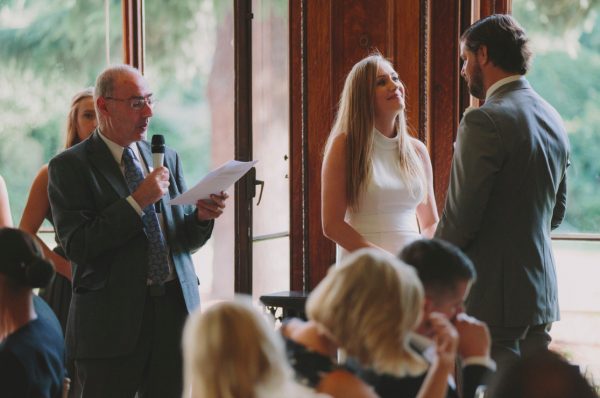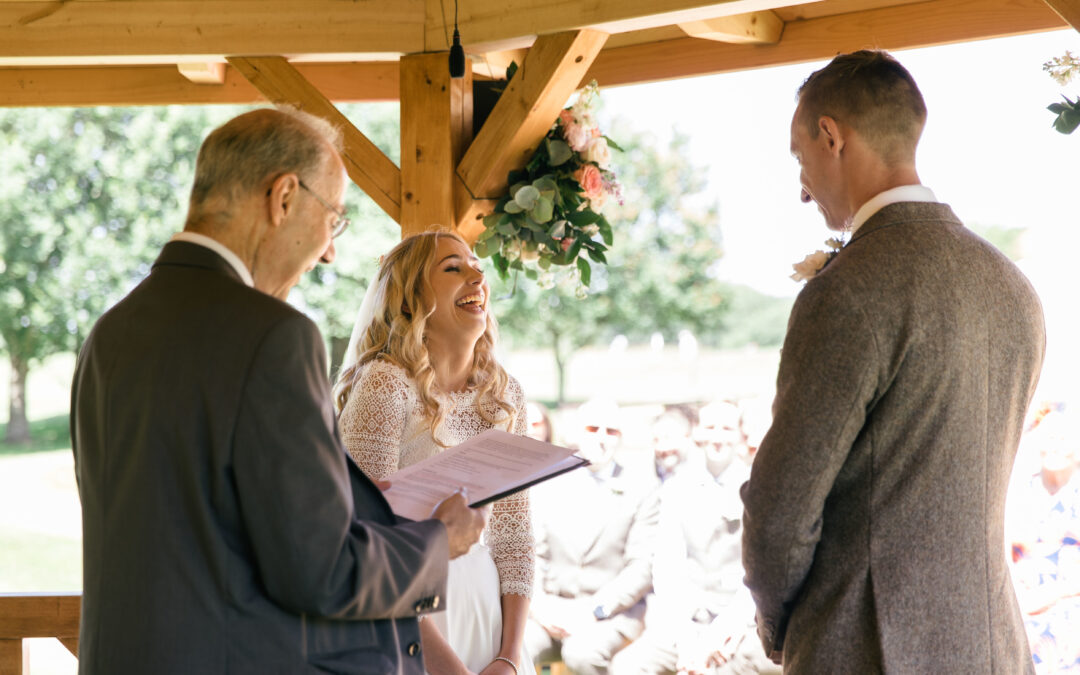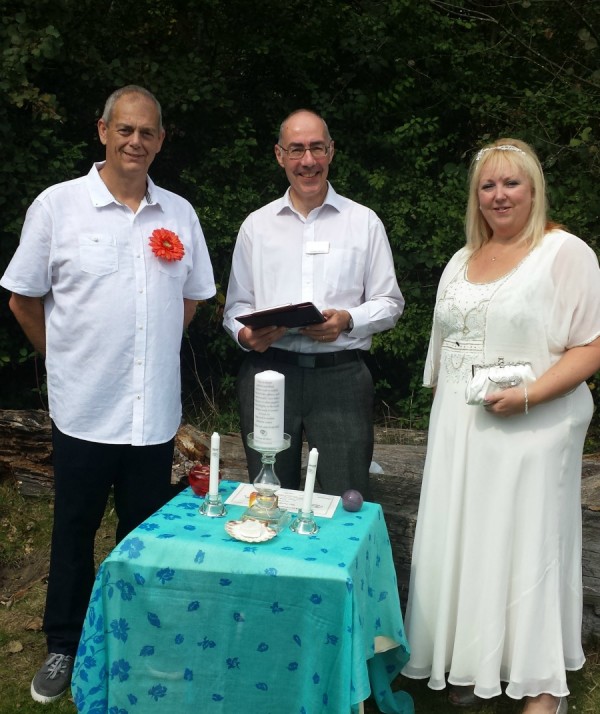
by Michael | Feb 7, 2022 | Blog
A lot of folk don’t need much of an excuse for a celebration.
Well, that was the scenario up until a couple of years ago. Now people tend to be more cautious. They are often hesitant to plan ceremonies. What if social distancing spoils things? What if lockdown kicks in again, and everything has got to be cancelled or postponed?
I don’t know if my opinion may start a backlash, but I feel that things in England seem to have calmed down, both politically and in terms of the epidemic. Relatively speaking, at least.
Ceremonies are being booked these days – including some large, high-end ones.
So, given that we have a (faint) green light, what sort of ceremony might you want to mark?
Obviously!
Major life-cycle events are back in demand – and rightly so. People really ought to mark a big event. It’s criminal to ignore a one-off that really means so much to so many people and is a vital milestone in individuals’ or couple’s lives.
Clearly, this highlights weddings, which need little introduction on these pages. Suffice it to say, that I believe that your big day should be celebrated the way YOU want it. (One major reason why I became a civil celebrant!)
More cautious or budget-conscious couples can opt for micro-weddings, but a lot of people are choosing a bigger ceremony, and that’s as it should be.
Other Causes for Celebration
Other events that deserve to be marked include Vow Renewals. There are a number of reasons (apart from an excuse for a get-together) why people opt for this ceremony. These include a milestone, like an anniversary ending in -5 or -0. There may be a desire publicly to declare one’s love (again), or it may be that circumstances have changed. You might want to replace your original vows with more relevant ones. Or perhaps you have children now, and wish to include them in your ceremony. You might even want to acknowledge coming out of a bad time, such as illness, unemployment – or even infidelity!
A Vow Renewal ceremony can be a way to cement your family harmoniously. The bonus is that you don’t need to register the ceremony legally and you can arrange it exactly as you want. (Step up the independent celebrant!)
If nature is particularly important to you, a handfasting may be a great idea. You can have it as part of a ceremony – or it can be the major focus. Most people find it beautiful and spiritually uplifting.
Naming ceremonies are popular. You can celebrate one on behalf of a baby or toddler, but you can also welcome step-children into the family after a remarriage. Again, a civil celebrant can draw up an appropriate and memorable service to mark the occasion.
There are other less conventional celebrations, such as marking a divorce or pet birthdays, and your celebrant will normally be happy to accommodate these too.
We are social animals. Let’s not allow ourselves to be deterred from having an occasional knees-up! These bring people together and put smiles back on faces. Let’s celebrate major life-cycle moments as they deserve and rejoice that we can do so!
I’d be happy to chat with you about any issues that may come up.
photo: mckinley_rodgers.com

by Michael | Jan 31, 2022 | Blog
Wedding planning is a very delicate balancing act. First and foremost, bride and groom must see eye-to-eye. Secondly, if other people are involved, their feelings and opinions may not correspond to the couple’s. Thirdly, social distancing and all that goes with it are nowadays part of the mix.
Bride and Groom
In many cases, the bride and bride’s family will be the prime movers in the planning. The groom usually likes the plans run past him, but often doesn’t want deeper involvement.
However, the bride shouldn’t go against his wishes – or behind his back – and risk an altercation on – or after – the wedding day!
Actually, don’t assume that no areas will interest the groom. He will probably want some sort of input into the catering and the venue. Bridesmaids’ dresses may possibly interest him less.
So the bride should try and keep him in the picture. The couple should discuss any issues – amicably! They both need to agree on the venue and officiant.
So let the groom participate in the planning, if he wants to. Accept that not every groom will be enthused, though. Give-and-take may be the order of the day(s).
Wedding Party
Of course, others may be playing a part. If we have a team, do we include bridesmaid, flower-girl, usher, Best Man, parent, and so on, in the planning? If so, how much notice should be paid to their views?
The bottom line is that the wedding is the couple’s affair, so whatever they want ought to count. Even if someone else is bankrolling the affair, it is still the couple’s big day.
However, if they are expecting others to contribute (whether financially or as an active participant), there may be a need for some compromise. Consultation is important. Nobody should be forced to go against their wishes or take on a role they’re really unwilling to adopt.
The middle course may be the order of the day. Possibly, somebody who might otherwise be overlooked could be invited to read a poem. Perhaps a moody youngster can be put in charge of the wedding presents. A bridesmaid, reluctant to wear a certain dress, can be given a bunch of flowers in recompense.
Most families are willing – and able – to reach a balance, and a wonderful day can be had by all.
If you have any thoughts or questions arising from this, feel free to contact me.

by Michael | Jan 24, 2022 | Blog
One of my many tasks as Civil Celebrant is suggesting readings for wedding couples. (Some celebrants often write their own, but I prefer to look to authors who are more qualified than I am.)
I thought it might be fun to choose a couple of examples of readings I havve used and share them with you.
One reading is lovely and yet practical.
Foundations of marriage – Regina Hill
Love, trust and forgiveness are the foundations of marriage. In marriage, many days will bring happiness, while other days may be sad. But together, two hearts can overcome everything … In marriage, all of the moments won’t be exciting or romantic, and sometimes worries and anxiety will be overwhelming. But together, two hearts that accept will find comfort together. Recollections of past joys, pains and shared feelings will be the glue that holds everything together during even the worst and most insecure moments. Reaching out to each other as a friend, and becoming the confidant and companion that the other one needs, is the true magic and beauty of any two people together. It’s inspiring in each other a dream or a feeling, and having faith in each other and not giving up … even when all the odds say to quit. It’s allowing each other to be vulnerable, to be himself or herself, even when the opinions or thoughts aren’t in total agreement or exactly what you’d like them to be. It’s getting involved and showing interest in each other, really listening and being available, the way any best friend should be. Exactly three things need to be remembered in a marriage, if it is to be a mutual bond of sharing, caring and loving throughout life: love, trust and forgiveness.
Another is rather amusing, and takes the side of the wife – of course!
What Almost Every Woman Knows Sooner Or Later – Poem by Ogden Nash
Husbands are things that wives have to get used to putting up with.
And with whom they breakfast with and sup with.
They interfere with the discipline of nurseries,
And forget anniversaries,
And when they have been particularly remiss
They think they can cure everything with a great big kiss,
And when you tell them about something awful they have done they just
look unbearably patient and smile a superior smile,
And think, Oh she’ll get over it after a while.
And they always drink cocktails faster than they can assimilate them,
And if you look in their direction they act as if they were martyrs and
you were trying to sacrifice, or immolate them,
And when it’s a question of walking five miles to play golf they are very
energetic but if it’s doing anything useful around the house they are
very lethargic,
And then they tell you that women are unreasonable and don’t know
anything about logic,
And they never want to get up or go to bed at the same time as you do,
And when you perform some simple common or garden rite like putting
cold cream on your face or applying a touch of lipstick they seem to
think that you are up to some kind of black magic like a priestess of Voodoo.
And they are brave and calm and cool and collected about the ailments
of the person they have promised to honor and cherish,
But the minute they get a sniffle or a stomach ache of their own, why
you’d think they were about to perish,
And when you are alone with them they ignore all the minor courtesies
and as for airs and graces, they utterly lack them,
But when there are a lot of people around they hand you so many chairs
and ashtrays and sandwiches and butter you with such bowings and
scrapings that you want to smack them.
Husbands are indeed an irritating form of life,
And yet through some quirk of Providence most of them are really very
deeply ensconced in the affection of their wife.
Take your pick (or let me help you choose some others!)!
photo:samyaz.sproutstudio.com

by Michael | Jan 17, 2022 | Blog
When you buy a car, you usually know what features you will be getting. The same with most products. So when you’re booking a service like that of a civil celebrant, why should things be any different?
Misconceptions
However, not that many people really know what a celebrant does. For example, they assume that a civil celebrant and event planner are the same.
No! The event planner usually books and organises the venue and suppliers. The one thing they don’t do is to organise the ceremony itself. (That’s usually their only time out the whole day!)
The weight of the ceremony falls squarely on the shoulders of the civil celebrant.
A lot of people also assume that a civil celebrant is either a “vicar” or a humanist. An independent celebrant can be anything they want to be – the clue is in the word “independent”. They may be prepared to include religious elements despite their own personal belief, and the opposite may be true too.
So what does a civil celebrant do (apart from conducting the ceremony on the day)?
Behind the Scenes
There’s normally a discovery conversation to start the ball rolling. That way, the couple can see if they even want to work with the celebrant – and the reverse is true too! What is also important is to discuss the couple’s vision for their big day. If the celebrant feels they can’t achieve it or opposes or even ignores it, it ain’t goin’ ta work!
Assuming the Ts & Cs have been agreed and both will work together, the celebrant prepares a draft and e-mails it to the couple in due course. They will probably want some changes, and there’s some toing and froing to be expected before the final version is agreed.
That way, there are no unpleasant surprises on the day, and the couple get exactly what they want.
On the Day
The visible role of the celebrant comes into play on the wedding day. As for me, I like to arrive about an hour before the ceremony is due to start. I can check that everything is set up correctly and sort it, if not.
I nudge relevant people, such as Best Men (“have you got the rings?”) and make sure any Event Planner knows I’ve safely arrived. The same goes for the bride (where accessible) and groom. A lot of it is about putting their minds at ease. I also collaborate with musicians (do they have the same playlist as me?) and photographers (“who is standing where?”). I try and remind those in the bridal train to process in slowly and remind them where they should end up.
As for the half hour or so in the spotlight, that’s our big moment. As celebrant, I never forget that it is not about me, but about the couple standing with me. I conduct the ceremony in the tone we have already agreed – usually solemnly, in places, humorously, and welcoming in others. I facilitate the events calmly and clearly. Sometimes there’s the unexpected to deal with. Then I rely on my years of experience.
The important thing is to make the ceremony memorable, enjoyable, meaningful and special for all concerned.
Much of what goes towards making the ceremony so special happens in the days and months preceding the wedding, and that is what a civil celebrant can do for you!
Feel free to have a chat to find out about how you could put together your special ceremony.
Photo: samyaz.sproutstudio.com

by Michael | Jan 11, 2022 | Blog
It would be stating the absolutely obvious to claim that weddings are expensive! No arguments there, surely!
What is less obvious is spotting where you can save some money.
For example, areas where you may not need to spend so much could include your venue, the florist, the dressmaker, the photographer or the celebrant. We’ll look at each of these in a moment.
Obviously, every ceremony is different and no two couples are likely to have the same needs and dreams. So my comments will be more appropriate to some of you than to others! However, I may just be able to set you thinking.
In my work, I understand the importance of friendly, professional service. I am not suggesting that you avoid professional suppliers (unless that is your choice). For example, you can save money if you do not hire a professional caterer. You can arrange it all yourself, but it is likely to be a huge headache for you, and I wouldn’t advise it.
Venue
Venues normally need to be booked at least a year in advance. I speak in other blogs about how you might go about choosing a suitable one, but here’s how you may be able to cut some costs.
Don’t go for a day that is likely to have high demand (Valentine’s Day, Christmas Day, New Year’s Day, high Summer). Similarly, if you don’t have your wedding in the evening, you may have some bargaining power with the venue. And you may be able to hold the ceremony and reception in one room or hall (with some time allowed in between for setting up).
Florist
Go for flowers that are in season and local. That can save you a surprising amount.
Dressmaker
Having your own dress may be very important, but it is possible to buy – or hire – some wonderful used dresses for nothing like the price of a new one.
Photographer
A dangerous one, this. A friend might be able to do this job. But will their enjoyment of your wedding be compromised? What if their results disappoint? Might your friendship be sacrificed consequently?
A professional photographer is likely to have functioning equipment and know what to do and how to do it. (That’s partly what you’re paying for!)
Celebrant
I price my services based on my expertise, and the amount of time and work I anticipate I will need to put in. Like many suppliers, I have a certain amount of flexibility. For example, I usually offer a reduction, if someone books me at a Wedding Fayre. In the case of a ceremony that I particularly want to do or a couple I particularly want to work with, I may offer a one-off price.
I do need to live and try to charge a fair price – but it doesn’t hurt to ask!
I hope this gives you a few practical ideas for saving money (there are many others I could have included) and that your wedding will cost you less than you thought!




